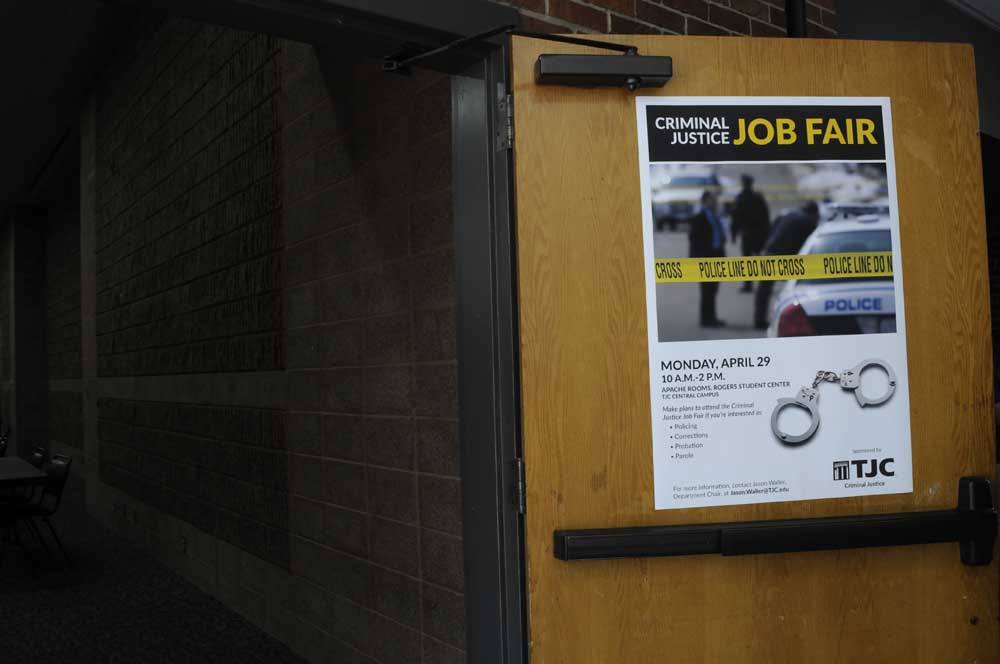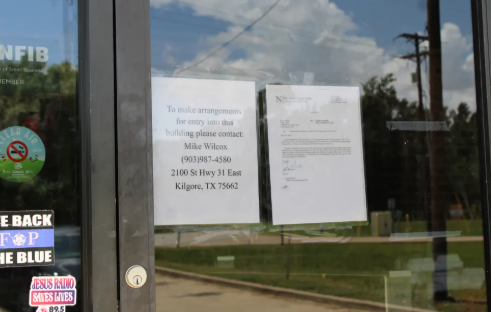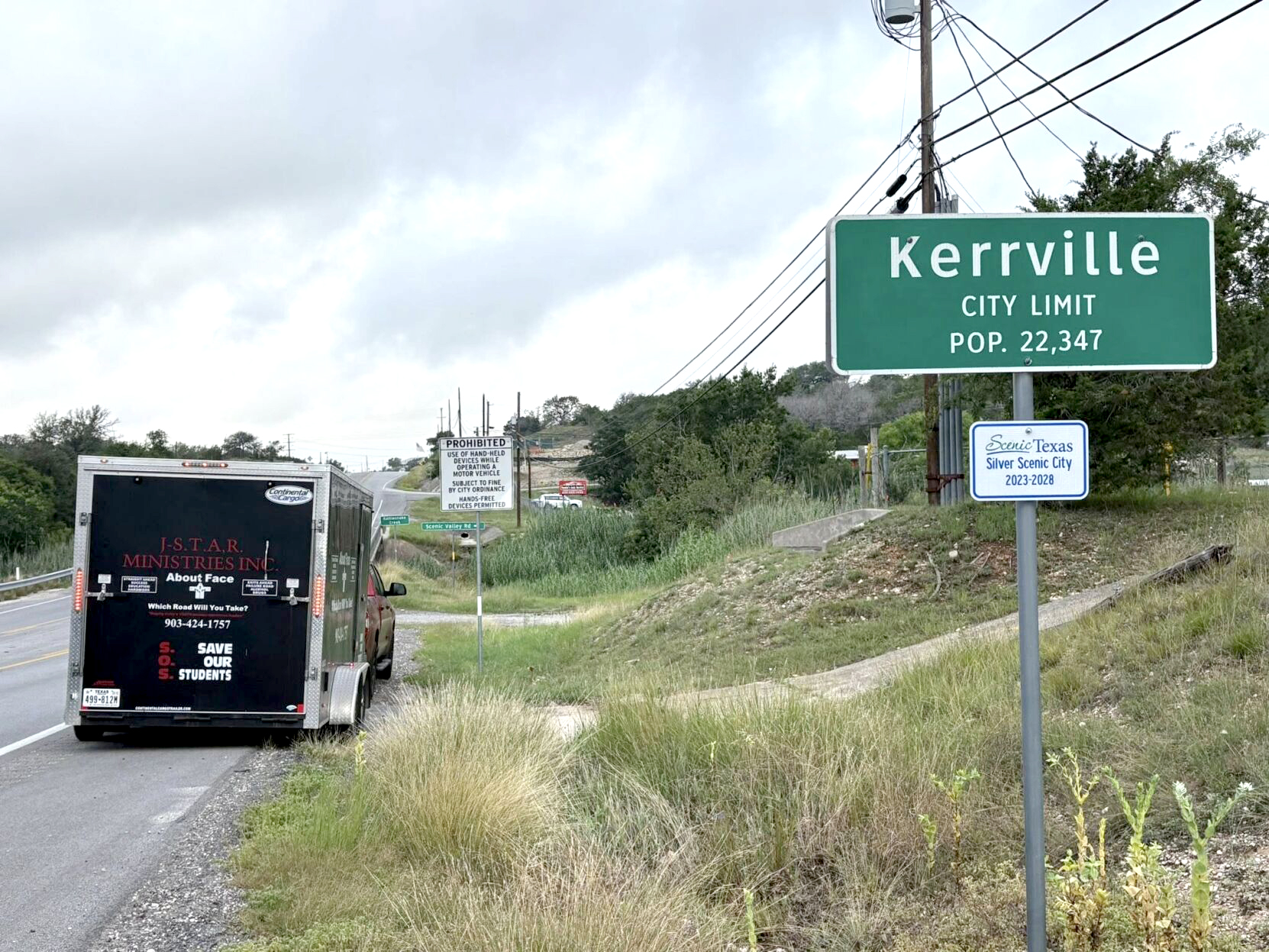Tyler Junior College career fair allows students to explore law enforcement options
Published 5:45 am Tuesday, April 30, 2024

- Over 50 criminal justice agencies set up booths at a job and career fair in the Apache Rooms of the Rogers Student Center, where around 300 attendees engaged with officers, gathered information and asked questions on April 29. (Katecey Harrell/ Tyler Morning Telegraph)
Over 50 criminal justice agencies set up booths Monday at the Tyler Junior College Criminal Justice Department Career and Job Fair held in the Apache Rooms of the Rogers Student Center, where around 300 attendees engaged with officers, gathered information and asked questions.
“We try to make sure that everybody understands that there’s all these options,” said Jason Waller, Tyler Junior College Criminal Justice Department Chair. “There’s so much more than just being a cop.”
Trending
The fair presented a unique opportunity to learn about job options with competitive pay, security, and flexibility and accommodate individuals with families or students working to earn a degree.
Federal and state agencies, including the Texas Department of Public Safety, the Texas Alcoholic Beverage Commission, and police departments from cities like Dallas, Mesquite, Garland and Allen, were present.
Law enforcement professionals can be intimidating, but career fairs allow students to leave their comfort zones and ask professionals in those fields questions face-to-face, said Dakota Haros-Gruber, TJC criminal justice student.
“You learn their experiences, what you are going to potentially be put up against when you go into a career, and you’ll learn different jobs within the umbrella,” Haros-Gruber said. “They’ll also suggest different tests or classes you could take.”
Law enforcement agencies nationwide are experiencing challenges in filling vacant positions, but changes have been implemented to attract interest.
Newcomers to law enforcement can expect to earn significantly more than veterans ever imagined. Competitive rates are prevalent in the metroplex, but even some suburban police departments offer up to $100,000 for candidates with just a two-year degree.
Trending
The pay is substantial, and the career offers both longevity and security.
“You don’t see police officers getting laid off,” Waller said. “You don’t see the police departments getting shut down because of the economy.”
Waller noted that social views on law enforcement officers swing like a pendulum. Every few generations, young people develop a jaded perspective on their role and have limited interest in pursuing such careers.
“Sometimes the portrayal is only of the bad things. That is a small part of our field,” said Alicia Kaar, City of Mesquite police officer. “99% of our job is helping the community, outreach into the community, building trust and helping protect those in our communities.”
Kaar said people are wary of these types of careers because of the perceived danger, uncertainty, and regimen of the job. A rigorous work schedule, including many major holidays and long hours, can be especially hard on people with families.
High school students can apply to work at the sheriff’s office, earning a substantial income with benefits while attending college if they choose to do so. Additionally, many departments can waive the degree requirement based on demonstrated dedication and interest for those who opt not to pursue college.
When contemplating a law enforcement career, it’s crucial to understand that despite media depictions of shootouts or high-speed chases, Waller said it’s uncommon to be involved in.
Waller notes while dealing with the approximately 5% of the community labeled as “troublemakers,” officers learn to navigate difficult situations and find the work not only rewarding but enjoyable.
“You do a lot of good as a police officer. You can … literally change lives and have a positive impact on your community,” Waller said. “Our job is to go out and protect our citizens and serve them.”






